What are the implications of violent far-right rally that replaced Tbilisi Pride?
Violence and chaos at far-right rally in Tbilisi
Massive violence, unprecedented for the Georgian capital, lasted all day on July 5 in the city center where the March of Dignity, marking the end of Tbilisi Pride week, was supposed to take place.
Hundreds of members of ultra-right and openly homophobic groups attacked, trashed and burned Pride-supporting offices and assaulted staff members. Violent groups also targeted journalists, more than 50 of media representatives were severely beaten, many ended up in the hospital. Dozens of cameras and professional equipment were destroyed.
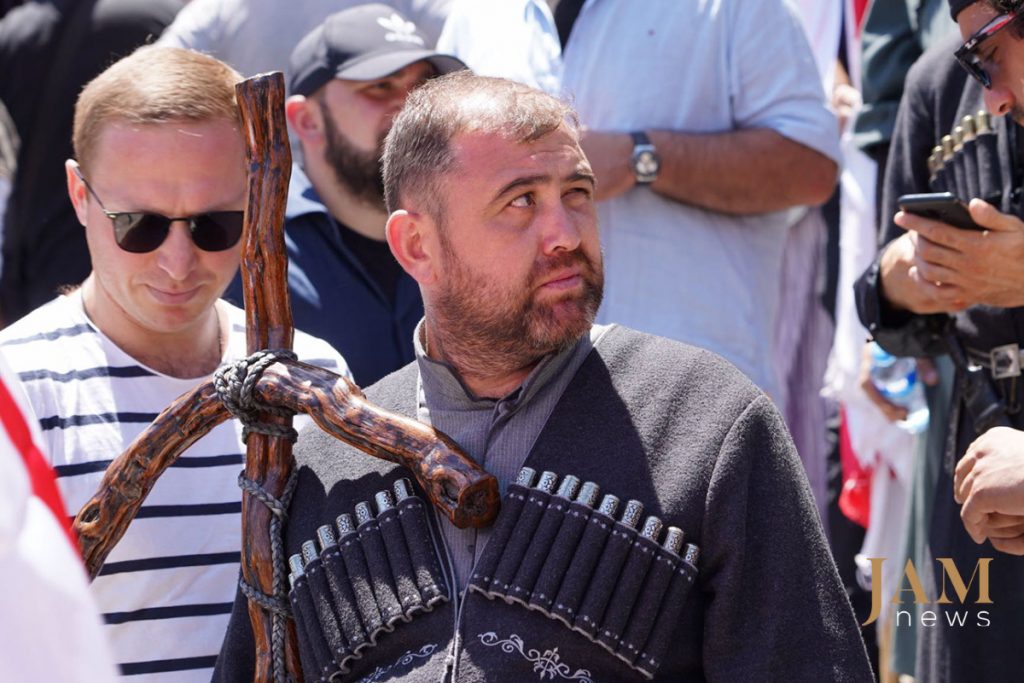
Opposition tents that had been standing in front of parliament since autumn 2020 as a sign of political protest were destroyed. This happened shortly after Prime Minister Irakli Garibashvili called on the morning of July 5 to abandon the march and accused the opposition and ex-President Mikheil Saakashvili of supporting Pride Week “in order to destabilize the situation in the country”.
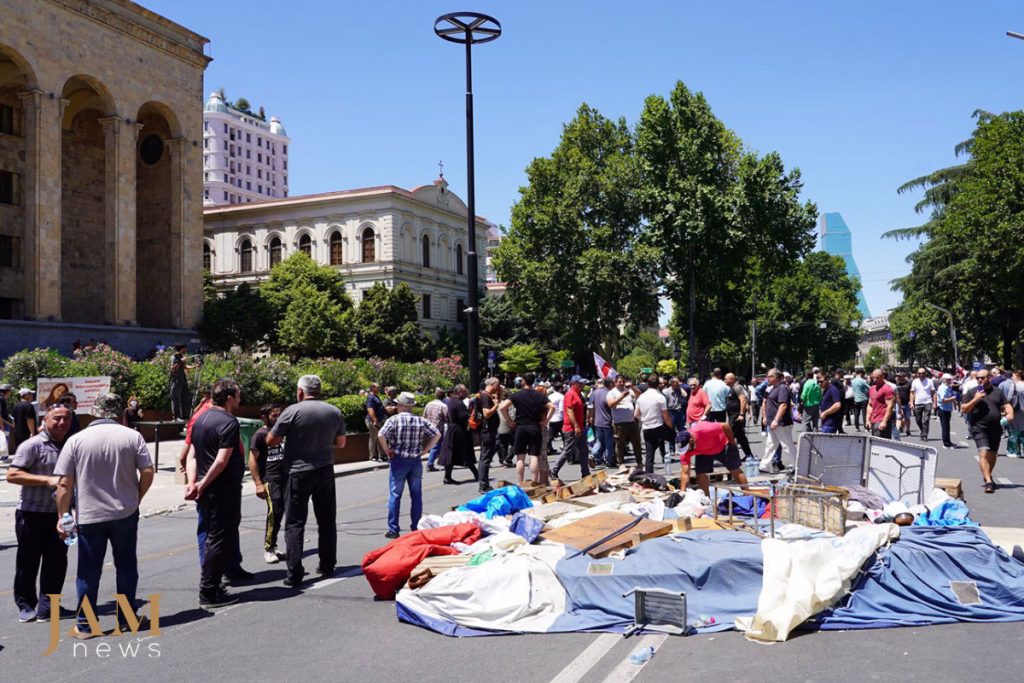
- Tbilisi Pride week begins with a series of clashes and arrests
- Media hunted: Over twenty reporters injured during anti-Pride rally in Tbilisi
The situation was almost unmanageable. The police did not respond at all or responded with a great delay. As a result, the Tbilisi Pride team declared that it could not endanger the lives of people and canceled the march.
After that, supporters of homophobic groups gathered in front of parliament to celebrate, play music and dance.
“The violence was initiated by the Patriarchy and provoked by the authorities”
“War has been declared on civil society, and a hunt has begun on independent media, democracy and European values”, joint NGO statement on the events of July 5 states.
It goes on to name the burning flag of the European Union during a raid on one of the office building a “symbol of the day”. The statement adds that “the violence was initiated by the Patriarchy and provoked by the authorities”.
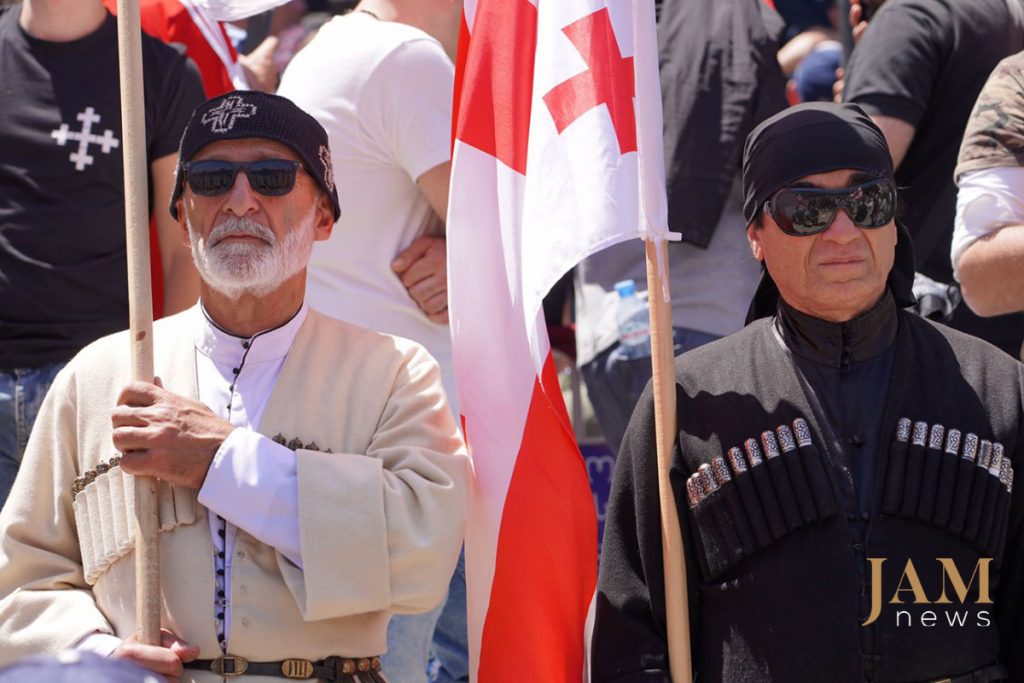
The Georgian Patriarchate has issued several statements about the Tbilisi Pride. At first, it urged the government not to hold the parade. It then turned to the European Parliament and the diplomatic corps with a proposal not to interfere in the religious life of Georgia. Finally, the Patriarchate addressed parishioners urging them to take to the streets and hold a large-scale rally:
“Let’s get together, let’s pray, let the world see that we are defending our dignity”.
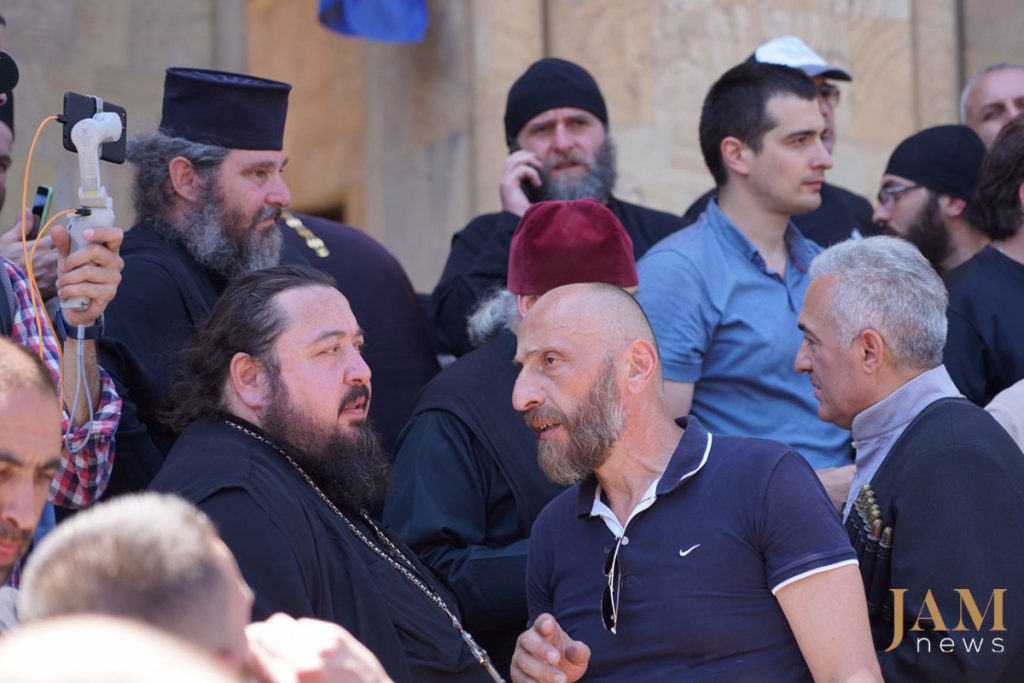
- Living surrounded by hate. LGBT individuals and their parents in Georgia
- President of Georgia: Tbilisi Pride participants have a right to freedom of expression
Georgian Public Defender Nino Lomjaria called the statements of the Prime Minister “extremely unacceptable” after he stated that the majority of the country’s population opposed Pride. “It is a big mistake to equate aggressive groups with the civilian population, in this case, it means encouraging these groups”, Lomjaria said.
The influential Association of Young Lawyers of Georgia also condemned the statements of the Prime Minister: “Such statements of the heads of state and departments and accusations against peaceful demonstrators further aggravate the already tense situation. It is also a direct encouragement of violent acts by homophobic groups. It is, in fact, a product of violence in the country”.
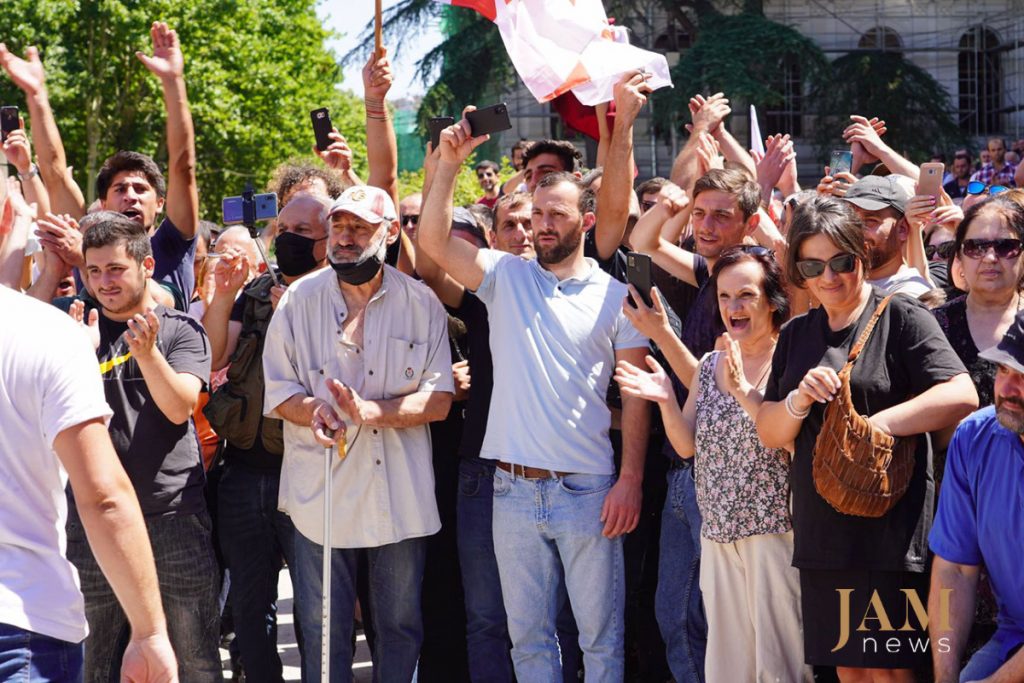
Khatuna Samnidze, chairman of the opposition Republican Party, believes the government used ultra-right groups to achieve its own goals, including the dismantling of the opposition tents in front of parliament:
“Now we can confidently say that this government is in alliance with the pro-Russian forces. A free citizen in this country has no opportunity to exercise their constitutional rights”.
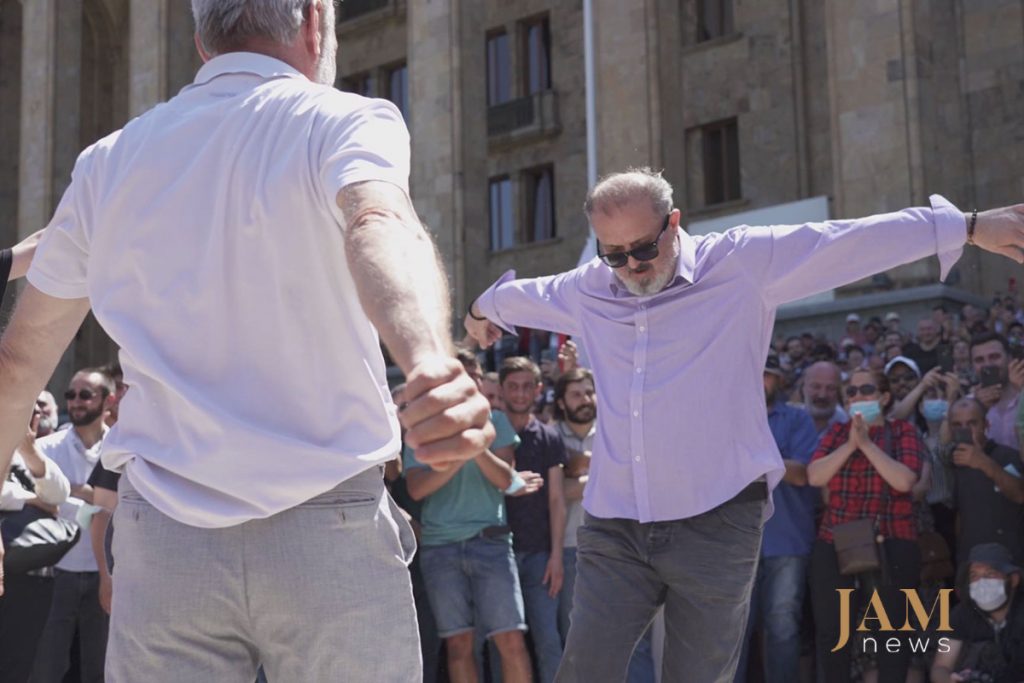
The Center for Social Justice assessed the Prime Minister’s statement as contrary to fundamental constitutional principles and human rights protection framework.
“The Prime Minister, in the name of tradition and the majority, neglected and justified the rights of certain groups”, the organization said in a statement.
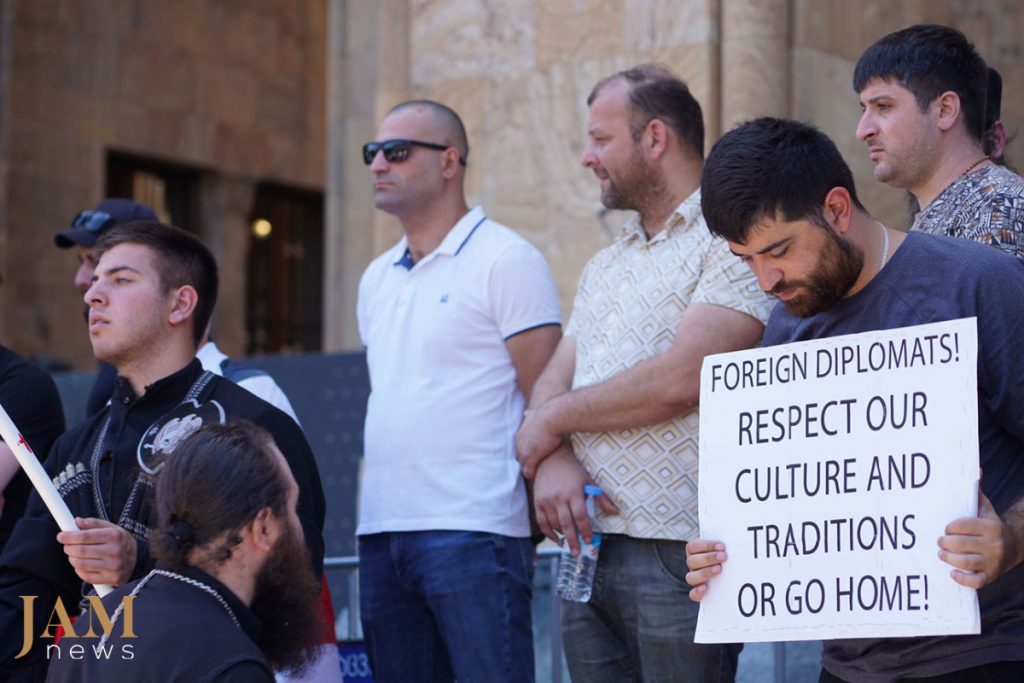
One important piece of evidence that the authorities supported the violence against Pride activists and journalists is the inaction of the police towards open confrontation in the streets. There were only small groups of patrol and criminal police who could not interfere with the mass beatings or were simply absent at the time. The special forces were never involved.
Instead of guaranteeing security their security, the Interior Ministry called on Tbilisi Pride participants to refrain from marching.
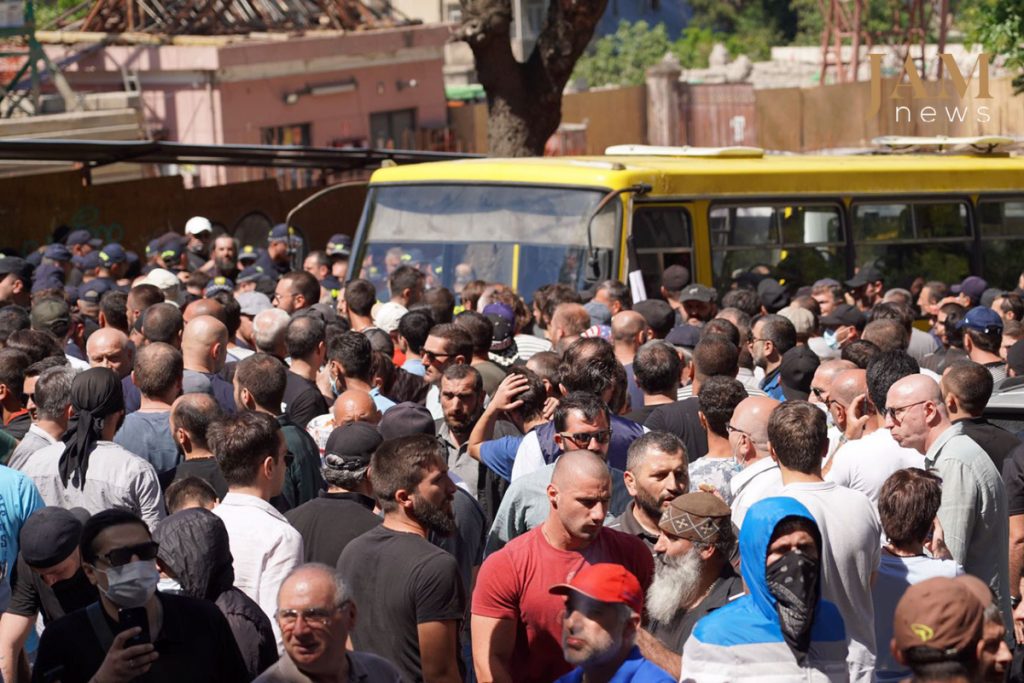
The Center for Social Justice believes that the Ministry of Internal Affairs deliberately did not take any measures to distribute the police cordon, protect and separate protesters and counter-protesters:
“The way the Interior Ministry acted makes one think that the government was not interested in protecting freedom of assembly and wanted to mobilize counter-protesters on the central Rustaveli Avenue and the surrounding streets”.
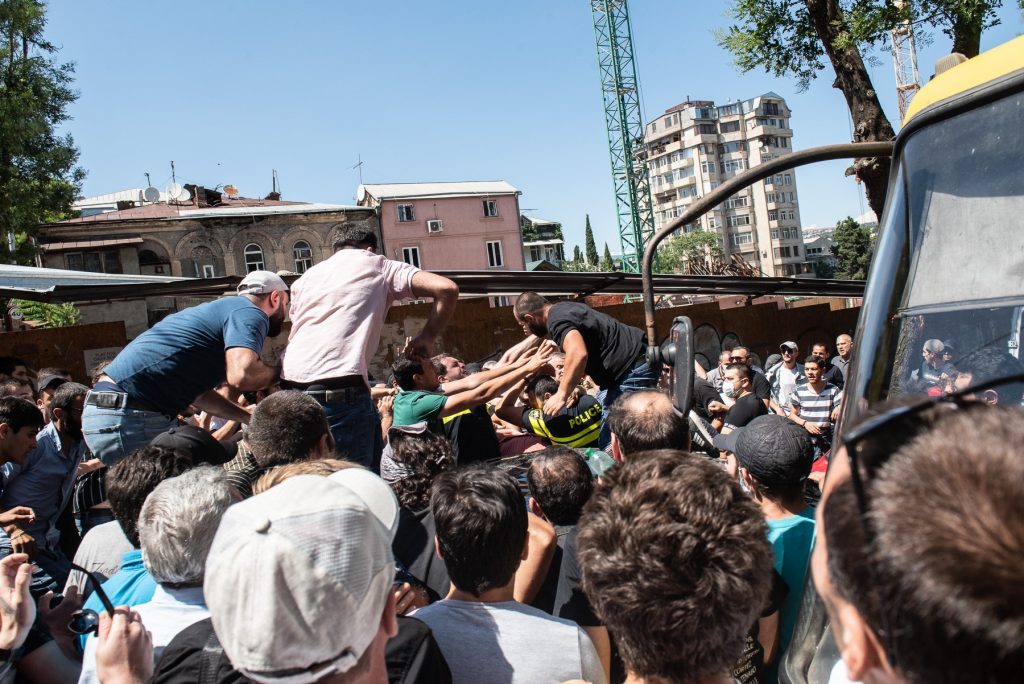
Authorities believe the police were in control of the situation
Irakli Kobakhidze, chairman of the ruling Georgian Dream party, disagreed with the criticism and said the police operation was well planned:
“How many police officers are needed to control 10,000 people? Remember how a thousand people attacked the parliament building, how many policemen were there? When it comes to mass crowds, it is difficult to react, especially when a lot of people come out”, Kobakhidze said.

Media hunted
By the evening of July 5, about 50 journalists were hospitalized. Most have severe injuries: a broken head, concussion, damaged eyes, knocked out teeth, bruises. One had a broken nose and needed an urgent operation.
All journalists who worked at risk to their lives in the city center say they were attacked on purpose.

Basti Mgaloblishvili, a journalist for Publika online publication Publika, told JAMnews that there has never been such violence against journalists even on 17 May. Basti says he and his fellow journalists have been deliberately attacked twice that day.
Once in the freezer, where they entered to cool off, and the second time, they left when they felt threatened and tried to stop a taxi to leave the area. Basti said that at the time, they no longer had identifiable marks, but they could identify them by conversation:
“We talked about that day in the freezer and it was easy to understand that we were journalists. The man there started screaming, calling someone.
“Some of us left in a taxi, others left on the bus. It didn’t matter where we were going, we were just trying to get away from the danger we were in”.
Netgazeti journalist was wearing a T-shirt that said ‘Press’ but it didn’t help him, and he was also both verbally and physically assaulted.
“Today, for the first time, it happened so that our press identification attributes did not protect us, but, on the contrary, made us targets. I have been a journalist for six years, I have covered all rallies, including rallies of aggressive groups, but I don’t remember such deliberate persecution”. Luca said.
In the middle of the day, many journalists chose to hide identification or change their clothes, however, it did not always help as the crowd was reacting to the presence of cameras.
“They knocked me off my feet and dragged me for 200 meters. The crowd was beating me up and not a single policeman came to my rescue”, aid Rati Zverava, a Formula 1 journalist.
Due to the threat to the health and life of their journalists, many editors ended up deciding to withdraw their journalists from the rally.
The journalist of the Internet edition “Netgazeti” wore a T-shirt with the words “Press”, but it did not help. He was insulted and pushed.
“Today, for the first time, it turned out that our identification marks as journalists did not protect us, but, on the contrary, made us targets. I have been doing journalism for six years, I have covered all rallies, including rallies of aggressive groups, but I don’t remember such deliberate persecution, ”Luca said.
Many journalists, in the midst of the work process, began to remove their identification marks and even change their clothes. However, this did not protect many of them, as the aggressive crowd reacted even to the presence of the camera.
“I was knocked down and dragged along the ground for about 200 meters. the crowd beat and kicked me, and not a single policeman rushed and covered me, ”says Rati Tserava, a journalist for the Formula 1 TV channel.
In a situation of direct risk to life and health, the editors of TV channels and publications ultimately decided to recall their journalists to the places of events.


“The violence was planned in advance by the authorities according to the Russian scenario”
“Several circumstances indicate that the events of July 5 in Tbilisi were planned in advance by the authorities, it was not just a failure of a weak government”, Tamta Mikeladze, director of the Center for Social Justice, wrote on social media.
One of the big surprises of this day was that any decision of the Tbilisi Pride organizers, which was made in a narrow circle, quickly became known to aggressive groups.
“What happened in Tbilisi is a classic hybrid war with Russian tactics”, said defense and security expert Teona Akubardia. “This is an attack on our democracy, the rule of law, human rights, the media, on our external vector”.
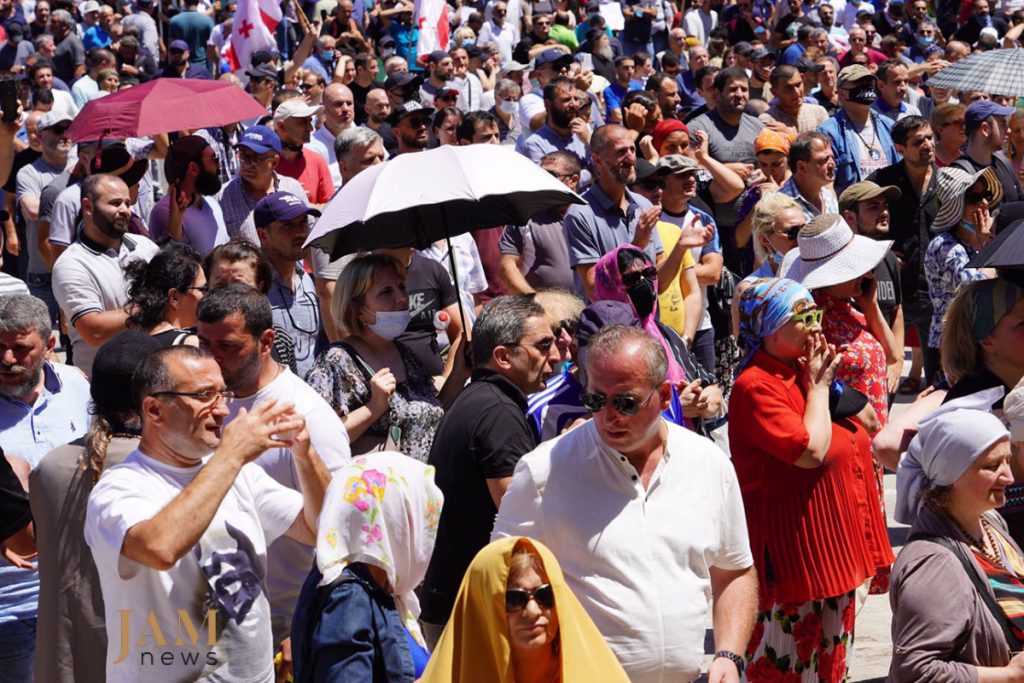
In the Georgian segment of social media, the dominant message is that the events in Tbilisi are very similar to the Russian scenario.
“This is not Georgia that I know, this is not Georgian traditions, nor religion, nor the future that we want for this country”, said President of Georgia Salome Zurabishvili.
According to the civil sector, the president’s statement was the only adequate statement by the government.
Statements of Georgia’s Western partners
A joint statement condemning the events in Tbilisi was made by a group of Western governments: Finland, France, Germany, Greece, Ireland, Israel, Italy, Latvia, Lithuania, the Netherlands, Norway, Spain, Sweden, Great Britain, the UN Agency in Georgia, the US embassy and Delegation of the European Union in Georgia.
“Those who incite violence or threaten to commit violence or commit acts of violence prevent Georgian law enforcement from ensuring a peaceful and secure environment. They must be brought to justice in full accordance with the principles of the rule of law.
“We call on all Georgian leaders and law enforcement agencies to act immediately to protect those who exercise the constitutional right to assemble and express their opinions, to protect journalists who act in accordance with the principles of a free press, and to publicly condemn the violence”.
Tbilisi Pride lasted from July 1-5 July. It began with a private screening of the documentary movie which was characterized by egg-throwing and arrests. During the day, the police arrested about 20 participants in the anti-pride homophobic rally. They were charged with petty hooliganism and disobedience to a lawful order from a police officer and were eventually released on bail.
The Queer Festival was held on July 3 and the March of Dignity was scheduled for July 5.
According to the Ministry of Internal Affairs, 8 people have already been arrested on charges of violence.


















